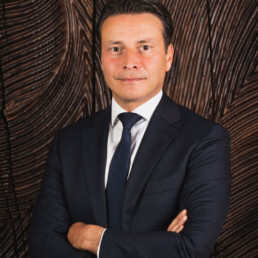In a frequently-asked questions document issued on November 25, 2019, Luxembourg’s Financial Sector Supervisory Authority (CSSF) has clarified the roles and responsibilities of the two individuals in charge of compliance with Anti-Money Laundering and Counter Financing of Terrorism (AML/CFT) controls for Luxembourg investment funds and managers according to the requirements of Article 4(1) of the law of November 12, 2004.
The legislation requires funds and management entities to appoint a member of their management body responsible for compliance with measures to curb money laundering and financing of terrorism, known as the responsible for compliance (responsable du respect des obligations in the French text of the law or RR for short). Depending on the size and activity of the business, the legislation also requires appointment of a AML/CFT compliance officer, described as a responsable du contrôle du respect des obligations (RC).
Given the high level of risk of money laundering and financing of terrorism in the investment fund sector identified by Luxembourg’s National Risk Assessment, the CSSF underlines that in practice this means all Luxembourg funds and managers subject to AML/CFT supervision are legally required to appoint both a RR and a RC.
Who can be the RR and RC?
For investment funds supervised by the CSSF, the RR can be the board of directors or other governing body acting as a collegial body, or the board of directors may nominate one of its members, as long as the RR has sufficient AML/CFT knowledge with regard to the applicable Luxembourg legislation and regulation as well as with regard to the investments and distribution strategies of the fund. The RR shall be able to demonstrate this knowledge upon request of the CSSF and shall be reachable without delay upon contact by the Luxembourg AML/CFT competent authorities. The RC, who must be mandated personally by the board or other governing body of the fund, may be a member of the board with demonstrable appropriate expertise and experience of money laundering and financing of terrorism controls under Luxembourg’s legislation and regulations as well as being knowledgeable about the fund’s investment and distribution strategies.
For investment fund managers supervised by the CSSF, the RR can be the board of directors or other governing body, or one of its members, and their AML/CFT knowledge with regard to the applicable Luxembourg legislation and regulation should cover the services provided by the investment fund manager. The RC shall be the compliance officer at appropriate hierarchical level in charge of AML/CFT aspects for the investment fund manager and shall have AML/CFT knowledge and expertise related to the applicable Luxembourg legislation and to the investment fund managers’ services.
Can the RC be a third-party employee?
If the RC is a third party, the fund must conclude a contractual relationship with the RC personally or, where the contract is with the RC’s employer, it must name the individual, whose replacement must be subject to the fund’s approval, and the individual designated as the RC must acknowledge its appointment in writing. If the fund has designated an investment fund manager, the RC may be a member of the staff of such investment fund manager.
In principle the RC must be based in Luxembourg to carry out their duties, but the CSSF may exceptionally permit it to be located abroad if the fund manager and the employee designated as RC are not domiciled in Luxembourg, provided it fulfils the expertise and knowledge criteria.
Conditions applicable to RC
The RC of a fund manager should be the compliance officer in charge of AML/CFT controls. The CSSF stipulates that the RC, whether of a fund or manager, must be available to the regulator on request without delay, and that they must have access to all internal documents and systems required to perform their duties, especially if they are not based in Luxembourg.
For further details of requirements regarding the skills and duties of AML/CFT compliance officers, please refer to articles 40(3) to 43 of CSSF Regulation n°12-02 of December 14, 2012. This CSSF regulation is available here.
Key competencies
arrow_forward Private equity – Fund structuring
arrow_forward Venture capital funds
arrow_forward Real estate – Fund structuring
arrow_forward Hedge funds
arrow_forward Crypto funds
arrow_forward Private debt funds
arrow_forward Infrastructure funds
arrow_forward Sustainable finance and ESG funds
arrow_forward Regulatory and compliance
arrow_forward Restructuring and insolvency
arrow_forward Investment fund litigation



